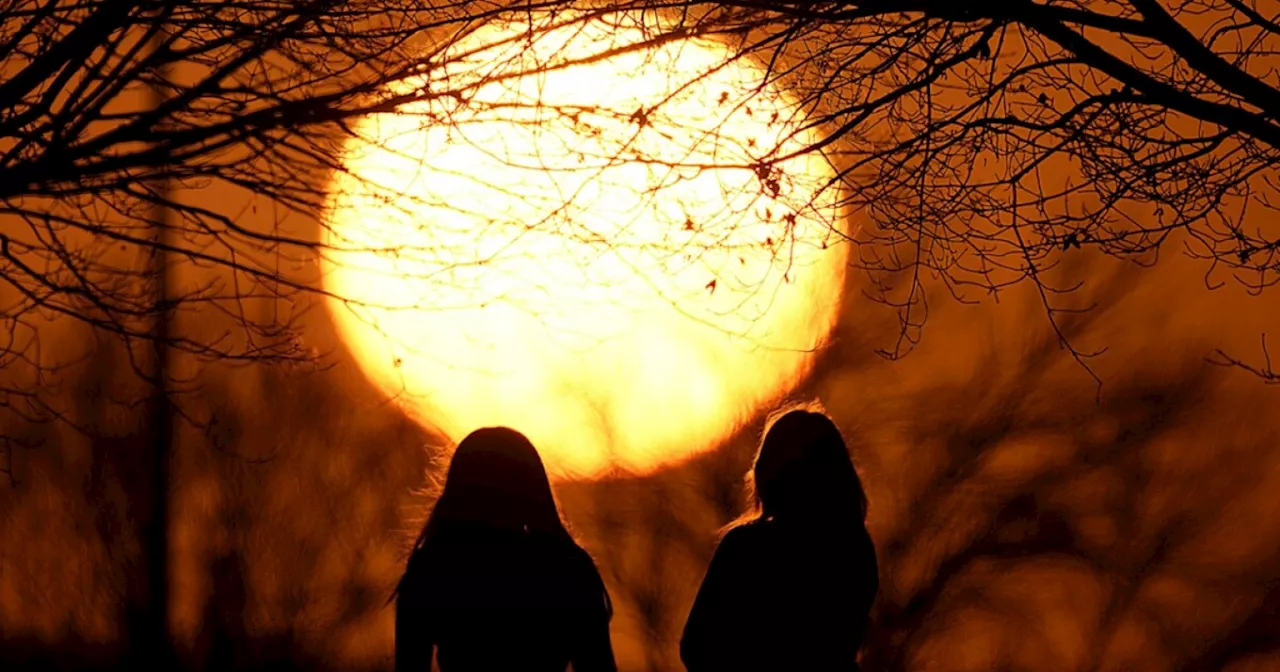Olivia Rosane is a staff writer for Common Dreams.
Biodiversity loss, the introduction of invasive species, the climate emergency , and chemical pollution all increase the risk of infectious disease, a first-of-its-kind analysis has found. The paper, published in Nature Wednesday, reviewed 972 studies and 2,938 observations on how human-driven environmental change had impacted the spread of disease, looking specifically at 1,497 host-parasite relationships.
'It could mean that by modifying the environment, we increase the risks of future pandemics,' study co-author Jason Rohr, a University of Notre Dame biology professor, told The Washington Post of the results.One way that the loss of species can increase disease is by eliminating rare species, Rohr explained to The New York Times. As parasites and pathogens tend to evolve to infect more common species, when these species are all that remain, the risk of infection goes up.
Covid-19 Pandemics Pollution Public Health Science Scientists Climate Emergency
United Kingdom Latest News, United Kingdom Headlines
Similar News:You can also read news stories similar to this one that we have collected from other news sources.
 Climate change could become the main driver of biodiversity decline by mid-centuryGlobal biodiversity has declined between 2% and 11% during the 20th century due to land-use change alone, according to a large multi-model study. Projections show climate change could become the main driver of biodiversity decline by the mid-21st century.
Climate change could become the main driver of biodiversity decline by mid-centuryGlobal biodiversity has declined between 2% and 11% during the 20th century due to land-use change alone, according to a large multi-model study. Projections show climate change could become the main driver of biodiversity decline by the mid-21st century.
Read more »
 Climate change could become the main driver of biodiversity decline by mid-century, analysis suggestsGlobal biodiversity has declined between 2% and 11% during the 20th century due to land-use change alone, according to a large multi-model study published in Science. Projections show climate change could become the main driver of biodiversity decline by the mid-21st century.
Climate change could become the main driver of biodiversity decline by mid-century, analysis suggestsGlobal biodiversity has declined between 2% and 11% during the 20th century due to land-use change alone, according to a large multi-model study published in Science. Projections show climate change could become the main driver of biodiversity decline by the mid-21st century.
Read more »
 140+ Experts to Rich Nations: Redirect Trillions in Public Money to Curb Climate, Inequality CrisesKenny Stancil is senior researcher at the Revolving Door Project and a former staff writer for Common Dreams.
140+ Experts to Rich Nations: Redirect Trillions in Public Money to Curb Climate, Inequality CrisesKenny Stancil is senior researcher at the Revolving Door Project and a former staff writer for Common Dreams.
Read more »
 Climate change expected to increase wildfire dangerWSL Institute for Snow and Avalanche Research (SLF) researchers expect an elevated wildfire danger in the Alpine Foreland from 2040 onwards due to changing meteorological conditions. The danger currently remains very low in that region, but there is likely to be a shift in this regard as a result of climate change.
Climate change expected to increase wildfire dangerWSL Institute for Snow and Avalanche Research (SLF) researchers expect an elevated wildfire danger in the Alpine Foreland from 2040 onwards due to changing meteorological conditions. The danger currently remains very low in that region, but there is likely to be a shift in this regard as a result of climate change.
Read more »
 Climate change will increase value of residential rooftop solar panels across US, study showsClimate change will increase the future value of residential rooftop solar panels across the United States by up to 19% by the end of the century, according to a new study.
Climate change will increase value of residential rooftop solar panels across US, study showsClimate change will increase the future value of residential rooftop solar panels across the United States by up to 19% by the end of the century, according to a new study.
Read more »
 Climate Change Linked to Increase in Stroke-Related DeathsA new study reveals that climate change is playing a significant role in the increase in stroke-related deaths annually. Extreme weather conditions, like chilling cold fronts and scorching heat waves, have led to a staggering 521,031 deaths in 2019 alone.
Climate Change Linked to Increase in Stroke-Related DeathsA new study reveals that climate change is playing a significant role in the increase in stroke-related deaths annually. Extreme weather conditions, like chilling cold fronts and scorching heat waves, have led to a staggering 521,031 deaths in 2019 alone.
Read more »
